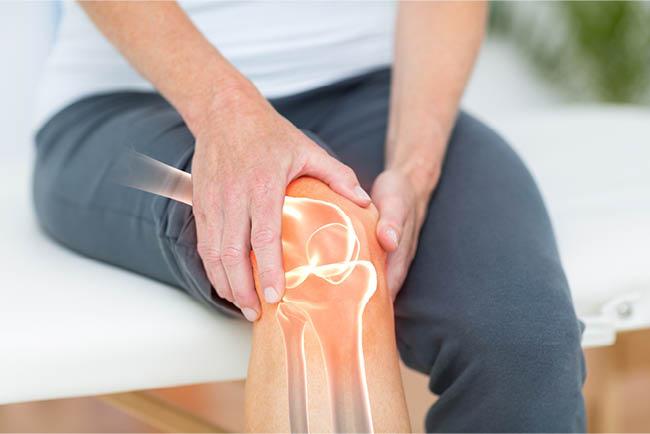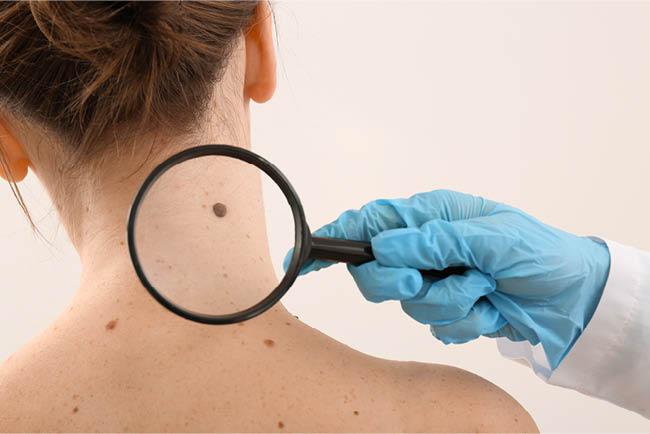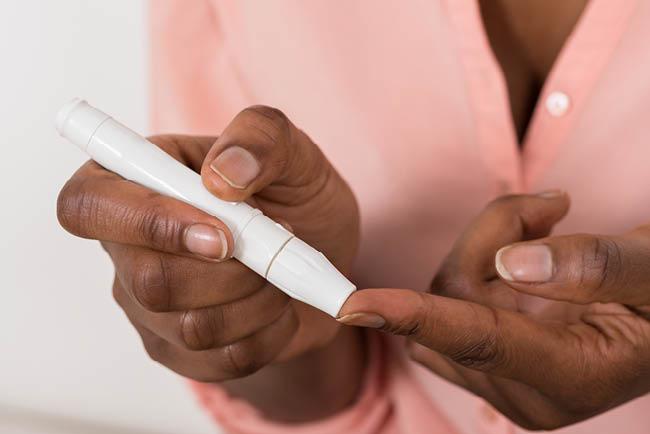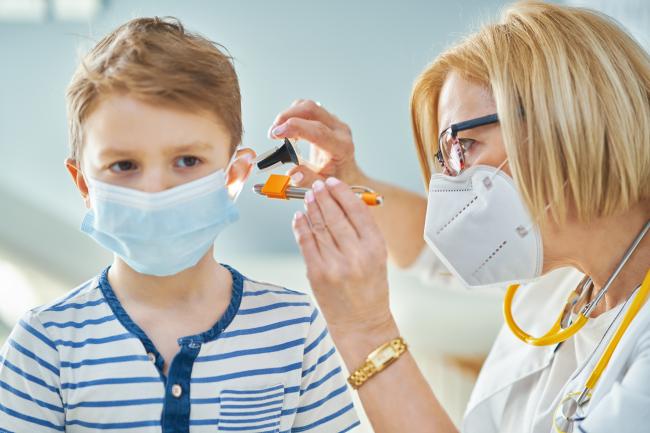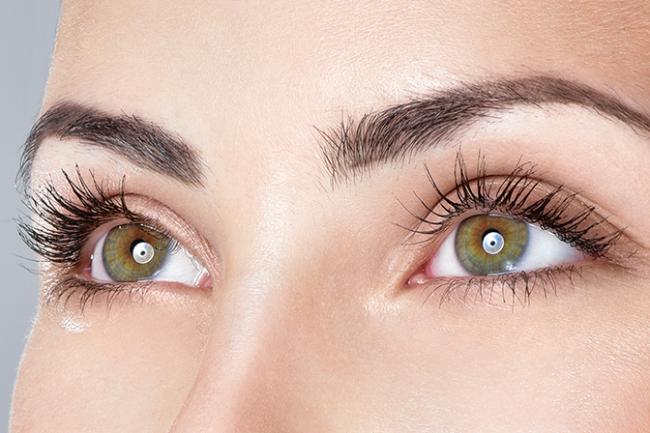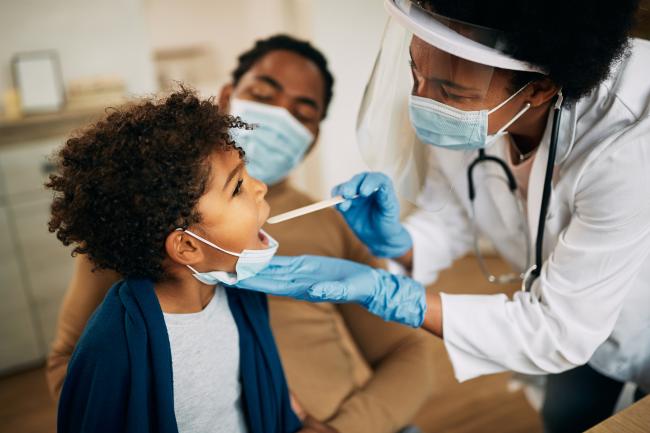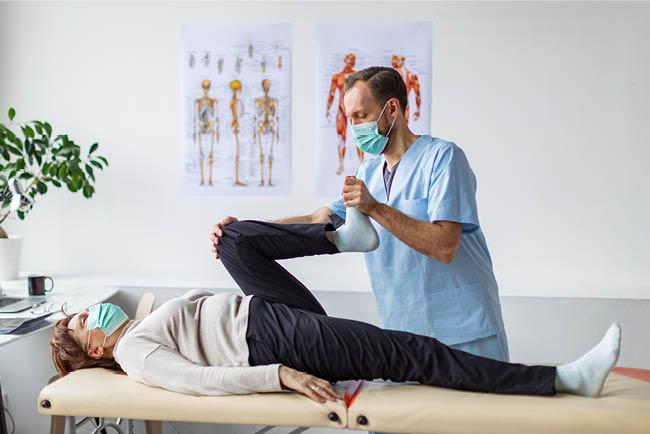Search Studies
Research studies are looking for volunteers just like you. Both healthy volunteers and participants with specific health conditions are needed to help answer important questions impacting the health of our friends and family. Join us to improve the health of others.
-
Visual Search Strategy in Autistic Adults
Official Title Visual Search Strategy in Neurodivergent PopulationsPurpose
The NeuroLab is looking at differences in how Autistic and Neurotypical adults pay attention to their surrounding environment. Previous studies have found that autistic individuals are often better at focusing on visual cues—things they see in their environment—and this study wants to understand what causes that difference. To do so, participants will come in for 2-3 hours and complete computer games, paper and pencil games, and surveys. The goal is to learn how attention works for different people and why Autistic individuals might focus on visual cues differently.
Could this study be right for you?
- Have a medical diagnosis of Autism
- Have normal or corrected color vision
- Can communicate verbally
Age Range
18 - 40 years -
A Long-term, observational study on the safety of TZIELD for patients with Stage 2, Type 1 Diabetes
Official Title AN OBSERVATIONAL, LONG-TERM SAFETY STUDY OF TZIELD® (TEPLIZUMAB-MZWV) IN PATIENTS WITH STAGE 2 TYPE 1 DIABETESPurpose
The objective of the study is to test the safety and efficacy of TZIELD over the course of 10 years in patients with Stage 2, Type 1 Diabetes, as well as the prevention of Stage 3, Type 1 Diabetes.
Could this study be right for you?
Inclusion Criteria:
TZIELD-Exposed Cohort
1. Patients in the US diagnosed with Stage 2 T1D who are planned to initiate TZIELD treatment according to the currently approved label or who have initiated TZIELD treatment within 6 months prior to enrollment:
− Day 1: 65 μg/m²
− Day 2: 125 μg/m²
− Day 3: 250 μg/m²
− Day 4: 500 μg/m²
− Days 5 through 14: 1,030 μg/m² per day
− Cumulative dose is approximately 11,240 μg/m²2. Appropriate written informed consent/assent as applicable for the age of the patient
TZIELD-Unexposed Cohort
1. Patients in the US diagnosed with Stage 2 T1D but who are not treated with TZIELD
2. Appropriate written informed consent/assent as applicable for the age of the patient
Exclusion Criteria:
1. Patients who initiated TZIELD treatment more than 6 months prior to enrollment
2. Patients who had participated in a previous clinical trial for TZIELD
3. Patients in an ongoing clinical trial of an investigational product or who had ended participation within 6 months prior to study enrollment; patients participating in other observational studies may be enrolled.Age Range
18 - 70 years -
A Study Evaluating Efficacy and Safety of Armour Thyroid Treatment Compared to Synthetic T4 in Patients with Primary Hypothyroidism
Official Title A Phase 2/3 multicenter, double blinded, randomized, dose-conversion, active control study examining the efficacy and safety of Armour Thyroid compared to synthetic T4 for the treatment of adults with primary hypothyroidismPurpose
The purpose of this study is to evaluate if Armour Thyroid is safe and effective in the treatment of hypothyroidism.
You will participate in this study for up to 90 weeks. The study will be conducted in 3 treatment periods plus a Screening and Follow-up period: • Screening period (up to 28 days)– the dose of Armour Thyroid will be adjusted as needed to ensure your Hypothyroidism is well controlled • Follow-up period (approximately 35 days following the last dose of study drug)
Could this study be right for you?
-
Were diagnosed with hypothyroidism at least 12 months ago
-
Have been on a stable dose of T4 (like levothyroxine or Synthroid) for at least 3 months
-
Have a recent TSH level between 0.45–4.12 mIU/L
-
Are between BMI 18 and 40
-
Are not pregnant or breastfeeding and use birth control if needed
-
Are not allergic to thyroid meds or pork products
-
Have no recent drug/alcohol abuse or severe liver/kidney disease
-
Are not in another clinical trial
-
Take no more than 200 mcg of T4 daily
Age Range
18 - 75 years -
-
Research Study on the Biomechanics of Total Knee Replacements
Official Title Biomechanical Metrics of Movement Relative to Total Knee ArthroplastyPurpose
This study aims to understand how a total knee replacement surgery (TKR) affects muscle function and movement in the lower body. It focuses on four key areas:
-
Examining how TKR changes the way muscles work in the lower body.
-
Exploring how these muscle changes relate to the forces people experience when walking and doing daily activities after surgery.
-
Connecting muscle function to how well patients feel and move after TKR.
-
Identifying different types of TKR patients based on their physical traits, movement patterns, and medical history to see how they compare.
Could this study be right for you?
- Must be scheduled to receive a total knee replacement within the next 2 months
- Have a body mass index (BMI) < 40
- Do not require the use of a cane or other assistive device when walking, climbing stairs, and getting up from a chair
Exclusion criteria varies; please contact Study Coordinator for more information
Age Range
18 years and up -
-
Impacts of Ketone Esters on Exercise and Heart Health in Type 2 Diabetics
Official Title Effects of Acute and Chronic Ketone Ester Consumption on Exercise Tolerance and Cardiac Function in Subjects with DiabetesPurpose
This placebo-controlled study is being done to evaluate the effects of a ketone ester drink on exercise performance and heart health in a group of subjects diagnosed with type 2 diabetes.
Could this study be right for you?
There are additional exclusion criteria, study staff will screen fully before enrollment.
Age Range
18 - 80 years -
Radiotracer Imaging of Lower Extremity Skeletal Muscle Perfusion in Patients with Peripheral Arterial Disease (PAD)
Official Title Radiotracer Imaging of Lower Extremity Skeletal Muscle Perfusion in Patients with Peripheral Arterial DiseasePurpose
The purpose of this study is to look at a new method to evaluate blood flow to the calves and feet.
Peripheral Artery Disease (PAD) patient outcomes will be evaluated for up to 12 months after their revascularization procedure to assess how early changes in SPECT-derived foot perfusion relate to rates of diabetic wound healing and limb salvage. Outcomes will be specifically evaluated at 3, 6, 9, and 12 months after revascularization at the time of their follow-up clinic visits to the OSU Comprehensive Wound Center at OSU Hospital East. Primary outcomes of interest will be 1) changes in wound size and healing, 2) minor or major amputations of the lower extremity, and 3) any subsequent interventional procedures, such as balloon angioplasty, stenting, or surgical bypass.
Could this study be right for you?
Heathly Volunteers with out previous cardiovascular disease
Or
PAD
Age Range
18 years and up -
Seat Belt Comfort Study
Official Title Variation in Thoracic and Abdominal Shapes and their Influence on Posture and Seat Belt Fit for Adolescent FemalesPurpose
We aim to understand how torso shape and bra design influence good vs. poor seat belt fit, posture, and comfort in cars.
Could this study be right for you?
To participate, you must be female, between 10–21 years old, in good health, a current bra-wearer, and willing to attend one 3-hour appointment at the OSU campus in Graves Hall (333 W. 10th Ave, Columbus, OH, 43210).
Age Range
10 - 21 years -
Effect of Diet and Electrical Stimulation Exercise on Blood Pressure Control in Spinal Cord Injury
Official Title Lifestyle solutions to postprandial hypotension in spinal cord injuryPurpose
To test if a low-glycemic diet and electrical stimulation of leg muscles can improve blood pressure control after eating.
Could this study be right for you?
- Spinal cord injury sustained at least 1-year ago
- Level of injury between C4 and T10
- Use of wheelchair for majority of daily activities
Age Range
18 years and up -
Does the amount of nicotine in filtered little cigars impact health and smoking habits?
Official Title LOWFLC Study: Addiction potential of low nicotine filtered little cigarsPurpose
Researchers from The Ohio State University are recruiting adult users of little cigars and cigarillos to help improve understanding of the products’ health impact.
Could this study be right for you?
- Current smoker
- No significant health problems
Age Range
21 - 75 years -
A Study for Reducing Alcohol Use During MOUD (Phase Two)
Official Title Brief Digitally Enhanced Intervention for Managing Emotional Pain and Reducing Alcohol Use during Medication for OUD (Phase Two)Purpose
This study is being done to further examine and improve how a brief clinical treatment intervention may reduce alcohol use among patients engaged in medication for opioid use disorder (MOUD) treatment.
The length of the study is approximately 10 weeks and will include two on-campus lab visits at Ohio State's Medical Campus, daily surveys via a smartphone app (surveys 3 times a day for ~21 days), three treatment sessions (completed online or in-person), and follow-up questionnaires (completed online). The total time commitment of the study is 11 hours and 6 minutes.
Could this study be right for you?
Inclusion Criteria:
- engaged in MOUD treatment (for at least one month)
- alcohol consumption (within the past 12 months)
- age 18 or older
- access to a smart phone
(partial list of inclusion criteria)
Exclusion Criteria:
- diagnosis of psychosis or bipolar I
- currently pregnant (positive pregnancy test)
(partial list of exclusion criteria)
Age Range
18 years and up -
Evaluating the Safety and Usefulness of an Investigational Study Drug for Treating Patients with Bipolar Depression
Official Title Depressive Episodes Associated with Bipolar I or II Disorder: A Double-Blind,
Placebo-Controlled Study to Evaluate the Efficacy, Safety, and Tolerability of
ABBV-932Purpose
The purpose of this study is to see if the investigational study drug is safe and useful for treating patients with bipolar depression.
Eligible participants will be randomized to receive the drug or placebo. A placebo looks just like the investigational study drug but has no active drug in it.
The maximum duration of the study treatment period is 6 weeks. Participants receive psychiatric evaluation at each visit, and physical exam, urine test and blood draws at some of the visits. All study medication and procedures are provided at no cost, and participants may be compensated for their time and travel for each visit attended.
Could this study be right for you?
A diagnosis of bipolar disorder (type I or II) and be currently depressed.
Age Range
18 - 65 years -
Postpartum Depression Study
Official Title A Multicenter, Randomized, Double-Blind, Parallel-Group
Dose-Controlled Study Evaluating the Safety and Efficacy of
RE104 for Injection in the Treatment of Patients with
Postpartum Depression (PPD)Purpose
The purpose of this study is to compare the effectiveness of two doses of an experimental medication, administered once, in reducing symptoms of depression in patients with postpartum depression.
Eligible participants will be assigned by chance to one of the two doses of the medication. The study includes 6 in-person visits and 4 telephone calls for up to 8 weeks.
Could this study be right for you?
To be eligible for this study, participants must meet the following criteria:
- Female aged 18 to 45 years
- Less than 12 months since delivery
- Currently depressed
- Not currently breastfeeding
Age Range
18 - 45 years



